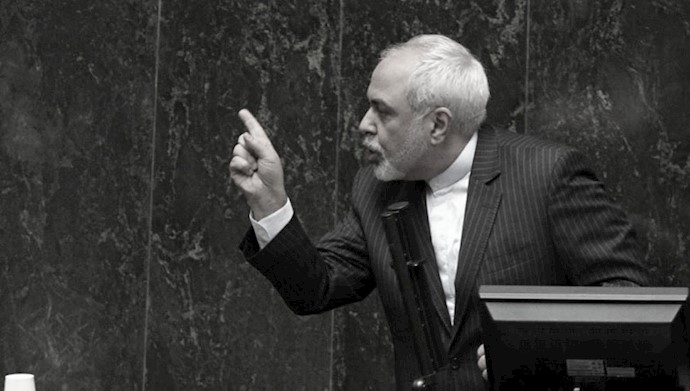Analysis by PMOI/MEK
Iran, Nov. 9, 2018 – The fight over the nuclear agreement between the Iranian regime and world powers, formally known as the JCPOA, is still on inside the regime and has intensified after the new round of U.S. sanctions came into effect on Monday.
On November 5, the Iranian regime’s parliament witnessed yet another such fight between the MPs from Khamenei’s faction and Javad Zarif, the regime’s foreign minister from Rouhani’s faction.
Zarif attended the parliament to answer questions from Haji Deligani and some other MPs about signing a few documents after the JCPOA was initially signed.
Haji Deligani stated that in the Frankfurt secret meeting Iran had made concessions beyond its JCPOA commitments.
“This agreement was made without the knowledge of the parliament, the higher [national] security council, and the supervisory commission of the JCPO,” he said.
He further revealed that, “On December 7, 2016, exactly one year after the implementation of the JCPOA and one day before the U.S. presidential elections, a commission under the leadership of Zarif made a [series] of negotiations in Frankfurt and signed three new agreements in direct violence of the JCPOA.”
Haji Deligani addressed Zarif and asked: “What gave you the right to violate the JCPOA that in addition to costs for the country’s prestige, had material costs for the nation?”
Zarif’s initial response was denial saying: “I can reassure you that without doubt, after JCPOA, no document has been signed in addition to the JCPOA.”
Zarif further acknowledged the Iranian regime’s dilemma under international pressure and said: “I told the nation in no ambiguous terms that the JCPOA is what we could have achieved and more than that was not possible.”
He then tried to silence the opposing faction by bringing the Iranian regime’s Supreme Leader into the equation and reiterated that everything was supported by Khamenei and was under his orders.
“I can still tell you proudly that it wasn’t possible more than what was achieved in the JCPOA considering the support of the Supreme Leader and his orders.”
Despite previous denials by Khamenei of having had thorough knowledge of the JCPOA details, Zarif said: “We have presented all the details to the Supreme Leader.”
Although Zarif didn’t leave the MPs any option other than to concede that they are satisfied, the fight over the JCPOA inside the Iranian ruling elite is far from over. That is because the struggle between different factions in Iran over International demands to curb Iran’s ballistic missiles program, export of terrorism in the region, and domestic human rights abuses, is still not over.
On November 4, Keyhan newspaper, close to Khamenei, wrote: “There are two types of people: The naïve ones and the ones on a mission; Not so long ago, they would highlight the animosity of the Zionists and made a difference between them and the Americans to encourage the negotiations and agreement with the Great Satan [the Iranian regime’s term for the U.S.]. For a time, they also tried to make a difference between Europe and America and Israel. But Europe has been exposed, especially with the evildoings in recent months (Support for terrorist groups and propaganda against Islamic Republic’s diplomats). In the face of America’s return of all the sanctions that had been suspended under the JCPOA, they [the Europeans] have to make a firm statement with practical consequences but instead of paying the remaining debts under the JCPOA, they accuse and demand.”
According to Rouhani and the likes of Javad Zarif, the JCPOA should have been a great victory that rescues the country. But instead, it has become a noose for the ruling mullahs that further tightens every day.
With the U.S. targeting Iran’s energy sector through secondary sanctions, the country’s oil-addicted economy is crumbling. The Iranian ruling elite need the petrodollars to keep their corrupt theocracy running. This very income has helped the mullahs over the past four decades to export terrorism around the world, wreak havoc in the region and crack down on popular dissent.
After the U.S. exited the Iran nuclear deal, Rouhani’s government took joy and reassurance in the “European JCPOA”, the “European package”, and the “special European mechanism”, trying to silence the opposing faction. But as we’ve witnessed, the European countries aren’t able or willing enough to pay the price for circumventing the sanctions. In addition, France and Denmark have revealed two Iranian terrorist plots on their soils in recent months, incidents that make the case for the European Special Purpose Vehicle very hard.
In essence, any European country that accepts to host the SPV risks U.S. retaliation and also loses the moral high ground by helping a regime that just recently plotted to bomb and assassinate its opposition on European soil.
Meanwhile, the Iranian regime, having fallen between two stools, can’t advance its nuclear program, fearing more international sanctions, and can’t take advantage of the economic benefits of the Iran deal.





